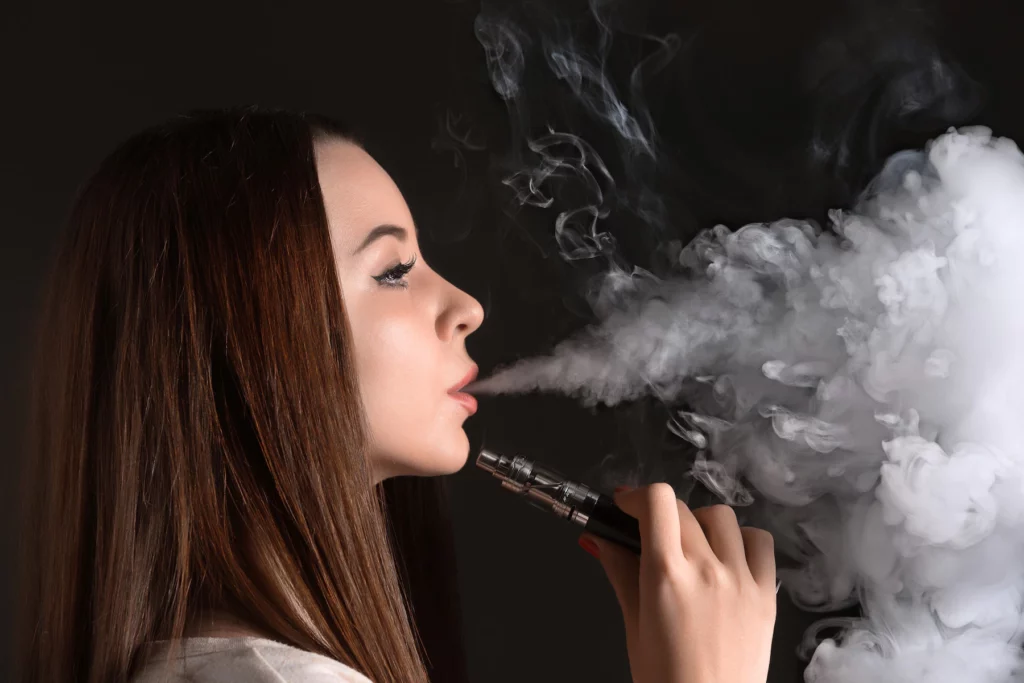Vaping works by heating a liquid to generate an aerosol that the user inhales and is often thought to be less harmful than smoking regular cigarettes. This may not be the case for the health of your mouth. There has been an upwards trend in vaping use amongst adolescents and young adults in recent years. Majority of individuals use e-cigarettes as a means of smoking cessation, circumventing smoke free areas and recreational enjoyment and do not understand the negative effects this habit can have on the oral cavity.
The liquid in e-cigarettes, called e-liquid, is usually made up of several chemicals that can be harmful to the oral environment including nicotine, propylene glycol, menthol and flavourings.
The negative effects of nicotine on gum tissue is well known. Nicotine has been shown to reduce blood flow to the gums, impact immune cell function and decrease connective tissue turnover. Although the percentage content of nicotine is lower than that of traditional tobacco products, one cartridge of e-liquid can still equal two to three packs of regular cigarettes.
Propylene glycol is a major ingredient in vapes and has a number of detrimental effects on the gums and teeth. The breakdown products of PG are toxic to tooth structure and can wear down enamel, weakening the teeth and leaving them at higher risk for decay. PG also limits saliva production and can result in ‘dry mouth’ and side effects include bad breath, increase risk for gum disease and increased prevalence of cavities.

Flavoured e-liquids are a popular choice for consumers with a large variety to choose from. It has been shown that flavoured e-liquids cause more gum inflammation than non-flavoured alternatives. Also, the increased viscosity of flavoured vapes allows certain bacteria to tightly adhere to teeth and can lead to increase plaque accumulation and rampant decay.
If you do vape there are several ways to minimise the side effects including the following.
- Drink water after you vape – This helps negate the ‘dry mouth’ you may experience and helps with bad breath associated with vaping.
- Limit your nicotine intake – Opting for low nicotine or nicotine-free e-liquids can help reduce the negative effects of nicotine on your teeth and gums.
- Brush and floss every day – This helps remove additional plaque build up you may experience as a result of vaping and helps promote overall oral health.
- Visit a dentist regularly – It is recommended to see a dentist every six months for check-up and cleans to catch any gum disease and cavities early and treat underlying issues with the oral cavity.
It is vital to make an appointment with a dentist or oral healthcare provider if you experience any abnormal side effects from vaping including and not limited to – loose teeth, non-healing mouth ulcers, receding gums, frequent dry mouth, tooth ache, gum pain or bleeding.
Ultimately your oral cavity will hugely benefit from ceasing vaping altogether and talk to your dentist, doctor or Quitline to implement strategies to help you with your journey.
